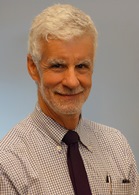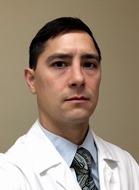Personal Statement
My area of expertise is addiction psychiatry.

My area of expertise is addiction psychiatry.





My clinical service and research focuses on the interaction of mental and physical illness, especially in patients with chronic pain. Much of my research in recent decades has focused on the risks of treating chronic pain with opioids. I have developed educational programs and outcome tracking tools to assist with opioid treatment of chronic pain. I have published a book about patient empowerment in chronic disease care, The Patient as Agent of Health and Health Care (Oxford, 2017). I have another book written with Jane Ballantyne forthcoming, The Right to Pain Relief and other deep roots of the opioid epidemic (Oxford, 2022).

My lab’s focus is reward processing, how it differs under behavior phenotypes that are more vulnerable or resilient to mental illness and how it is changed by psychiatric pathology. Our primary focus is dopamine transmission and the circuits in which is participates.
We developed tools that allow us to track dopamine with sub-second resolution in animals over the course of months (Clark et al, Nat Methods, 2010). This approach allows us to study trajectories of precise neurochemical encoding of behaviors over the course of the development of symptomology and subsequent treatment in animal models of disease. We also have adapted this technology for intraoperative recording in humans (Kishida et al, PLoS One, 2011).
Our research highlights include contributions in the area of dopamine’s role in learning (Flagel et al, Nature, 2012), decision making (Gan et al, Nat Neurosci, 2010) and goal navigation (Howe et al, Nature, 2013). We have gleaned information on how stress impacts appetitive motivation (Wanat et al, Nat Neurosci, 2013), how adolescent alcohol use produces enhanced risk taking later in life (Clark et al, PLoS One, 2012), and identified biological mechanisms for the motivational shift in stress-induced depressive disorders (Lemos et al, Nature, 2012) and the switch to excessive drug intake in substance abuse (Willuhn et al, Nat Neurosci, 2014).
These approaches have attracted a large number of collaborations, including National Academy members Akil, Palmiter, Graybiel and Kandel.

I am an Assistant Professor in the Department of Psychiatry & Behavioral Sciences at the University of Washington Medical Center. In addition to general psychiatry, I am an expert in Consultation Liaison Psychiatry. My primary clinical roles are in the inpatient psychiatry consultation service at the University of Washington Medical Center and Harborview Medical Center.
I earned my bachelor’s degree from the University of California, Berkeley and his M.D. from Loma Linda University in California. I first came to the UW as a psychiatry resident, and then continued on for my fellowship in Psychosomatic Medicine.

I am a licensed clinical psychologist in Washington State. I am the Director of the University of Washington School of Medicine’s Psychology Internship Program which is accredited by the American Psychological Association’s Office of Program Consultation and Accreditation. And, I conduct research on health and risk behaviors across the lifespan. Specifically, I have conducted research in the areas of college student alcohol use, young adult gambling behavior, and co-morbidity of substance use and mental health/risk behaviors (i.e. risky sexual behaviors). I have extensive experience working with college students/young adults, military/veteran, and minority/diverse populations. I am also interested in mental health issues including depression, anxiety, and PTSD. I maintain an active clinical practice in the areas of mental health issues with patients diagnosed with hematological and oncological illness and have clinical responsibilities at the Fred Hutchinson Cancer Center. I also provide clinical supervision for psychology residents and psychology practicum students at Fred Hutchinson Cancer Center as well. Overall, my professional aspirations are to improve the public health through empirically-supported psychological interventions and providing mentorship to diverse trainees to expand the reach of psychology.